Becoming a chef is more than just a passion for cooking; it requires a solid foundation in culinary education. Aspiring chefs need to navigate a world filled with flavors, techniques, and the science behind food. Understanding the fundamentals of cooking, food safety, and kitchen management is essential for anyone looking to thrive in this fast-paced environment.
Culinary schools and programs offer structured learning that equips individuals with the skills necessary to excel in the kitchen. From mastering knife skills to exploring international cuisines, education plays a crucial role in shaping a chef’s career. Whether through formal training or hands-on experience, the right educational path can open doors to exciting opportunities in the culinary world.
Key Takeaways
- Educational Pathways Matter: Aspiring chefs can choose from various educational options, including culinary schools, community colleges, apprenticeships, and certifications, each with unique benefits.
- Formal Training is Essential: Culinary arts degree programs and certificate programs provide foundational skills and specific culinary techniques critical for career advancement.
- Real-World Experience: Apprenticeships and on-the-job training offer invaluable hands-on experience and mentoring opportunities with seasoned chefs, crucial for skill development.
- Skills Development: Education in culinary arts hones both technical skills (like cooking techniques and food safety) and soft skills (like communication and time management) vital for success in a kitchen environment.
- Continued Learning is Key: Ongoing education through workshops and courses helps chefs stay current with culinary trends and innovations, ensuring they remain competitive in the industry.
- Alternative Learning Options: Online courses and self-teaching methods provide flexible learning opportunities for culinary enthusiasts to acquire new skills and knowledge independently.
Education Needed to be a Chef
Aspiring chefs benefit from various educational pathways designed to enhance culinary skills and knowledge. Culinary schools, community colleges, and apprenticeships serve as primary options for formal education.
Culinary Schools
Culinary schools offer comprehensive programs covering essential topics like cooking techniques, pastry arts, and nutrition. Programs generally vary in length from several months to two years, culminating in diplomas or associate degrees. Graduates often enter the workforce with a robust understanding of culinary principles and the ability to execute various dishes.
Community Colleges
Community colleges provide culinary arts programs that emphasize affordability and flexibility. Programs typically last two years and frequently include hands-on training in kitchens. Students gain practical experience while studying food safety, menu planning, and cost control in culinary operations.
Apprenticeships
Apprenticeships combine classroom learning with real-world kitchen experience. Individuals work under the mentorship of experienced chefs while participating in structured training programs. This approach allows for hands-on skill development in a professional environment, fostering industry connections essential for career advancement.
Certifications
Various certifications enhance professional credibility in the culinary field. Organizations like the American Culinary Federation (ACF) offer certifications based on skill level and experience. Achieving certification demonstrates a commitment to excellence and can significantly boost career opportunities and earning potential.
Skills Development
Education in the culinary arts emphasizes the development of critical skills. Techniques in food preparation, plating, flavor pairings, and dietary restrictions are crucial for culinary success. Knowledge of kitchen management, policies, and sanitary practices helps create efficient working environments.
Continued Education
Continued education plays a vital role in a chef’s career. Many chefs pursue workshops, seminars, and specialized courses to stay updated on culinary trends and techniques. This ongoing learning keeps chefs competitive and informed about new ingredients, methods, and kitchen technologies.
Formal Culinary Education
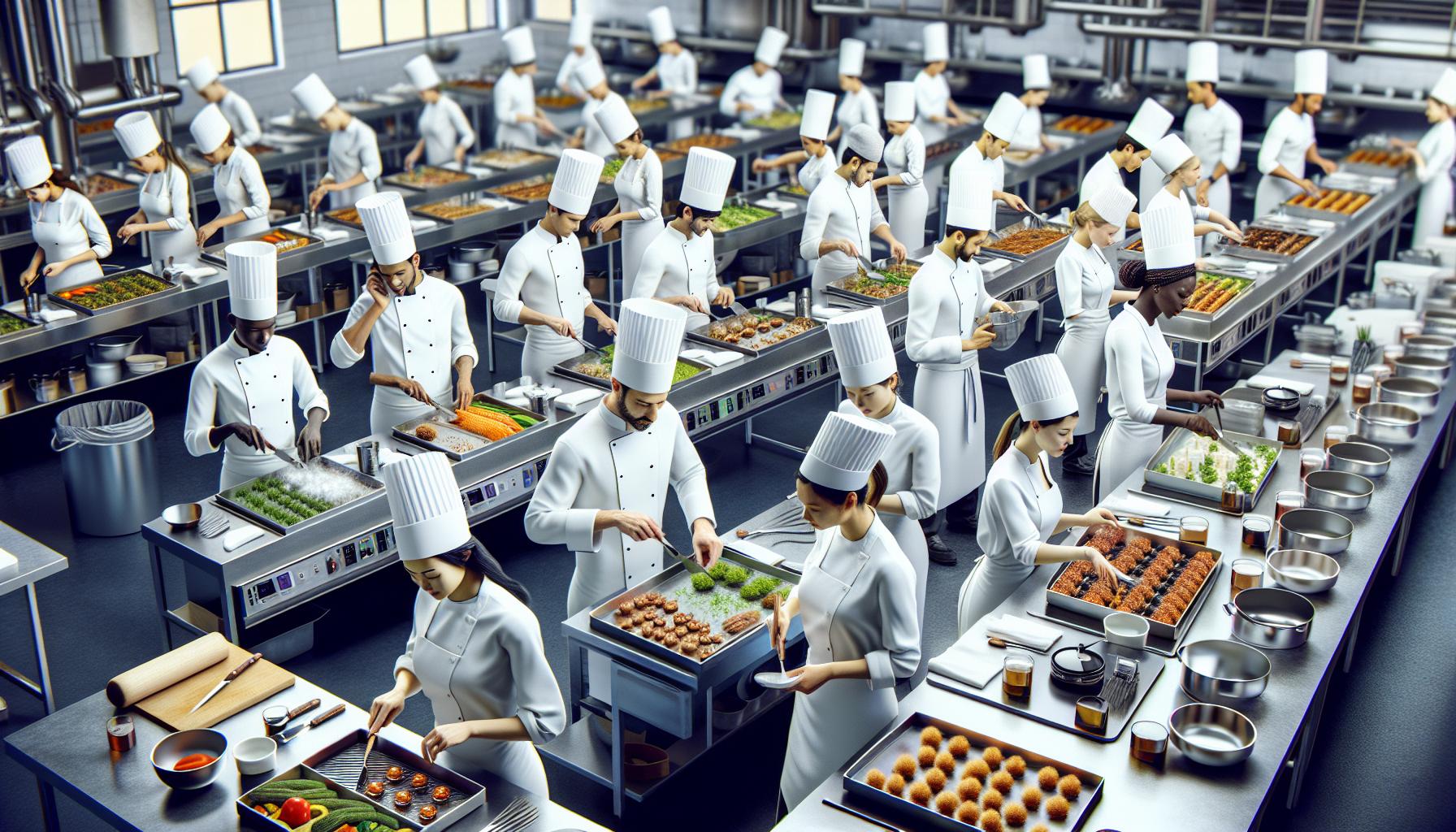
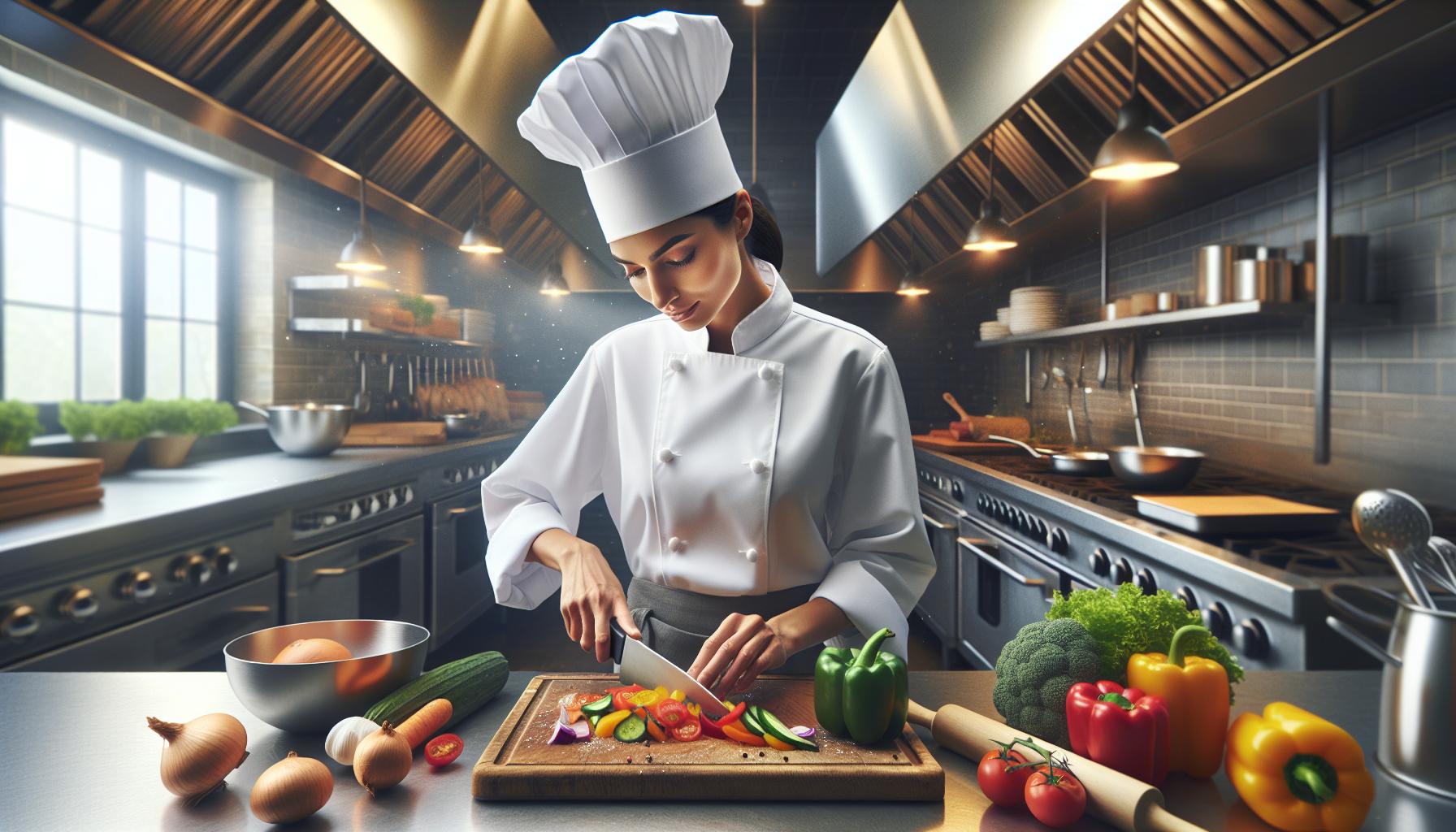
Formal culinary education provides aspiring chefs with the foundational knowledge and practical skills needed for a successful career in the culinary arts. Various programs exist, each offering different pathways to enhance culinary expertise.
Culinary Arts Degree Programs
Culinary arts degree programs typically span two to four years, resulting in associate or bachelor’s degrees. These comprehensive programs cover a range of subjects, including advanced cooking techniques, nutrition, menu planning, and restaurant management. Students engage in hands-on training in professional kitchens, allowing them to apply what they learn in real-world scenarios. Institutions like the Culinary Institute of America and Johnson & Wales University are renowned for their robust degree offerings. Graduates often find themselves prepared for roles such as executive chef, sous chef, or kitchen manager.
Certificate Programs
Certificate programs provide a focused education in specific culinary skills, usually completed in a shorter time frame, often between six months and a year. These programs emphasize essential areas such as baking and pastry, culinary fundamentals, or specialized cuisines. Institutions like Le Cordon Bleu and culinary schools at community colleges offer these certifications. Completing a certificate program helps aspiring chefs gain practical skills quickly and can lead to entry-level positions in the kitchen, enhancing their employability and paving the way for further education in the culinary field.
Apprenticeships and On-the-Job Training
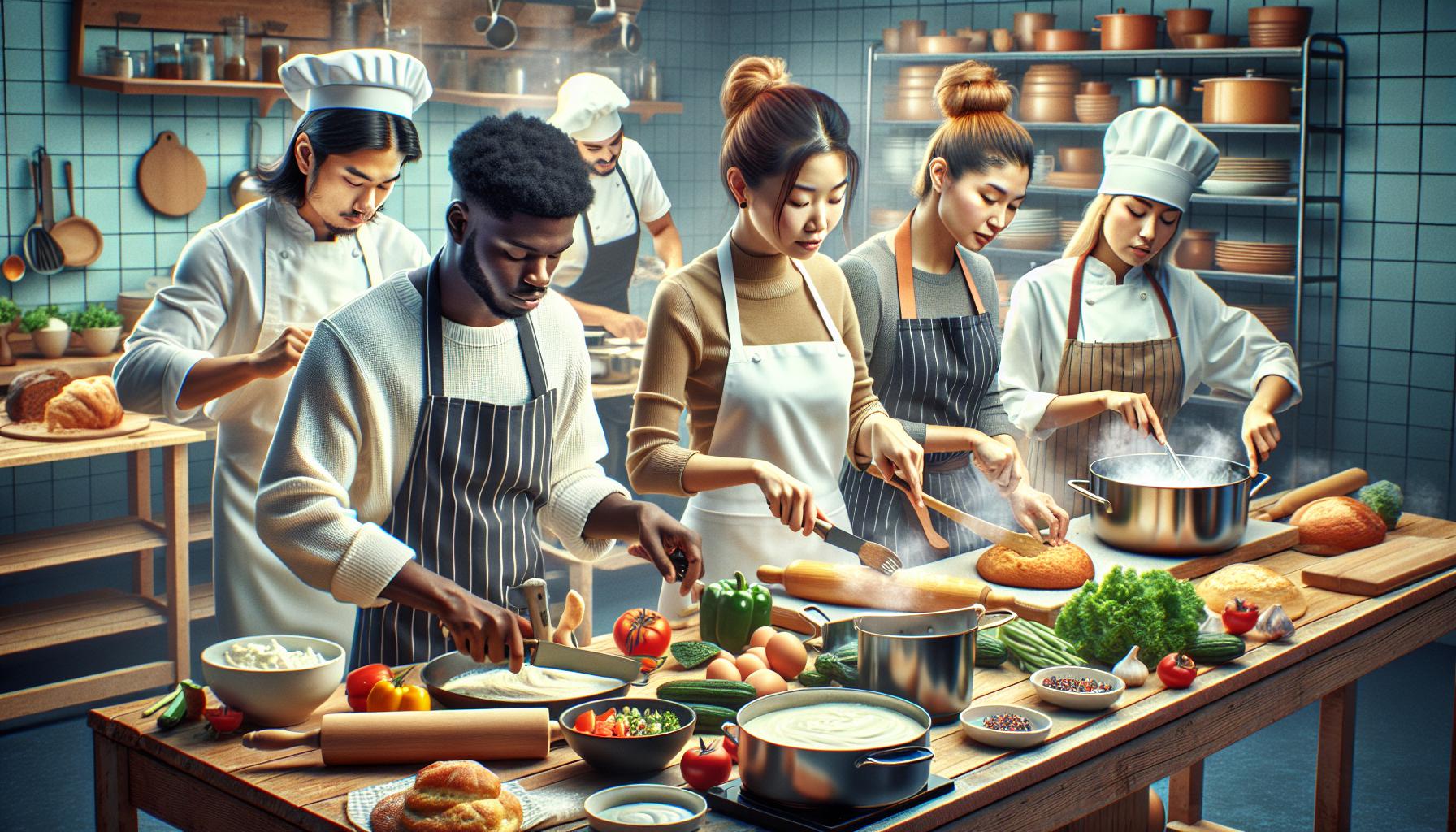
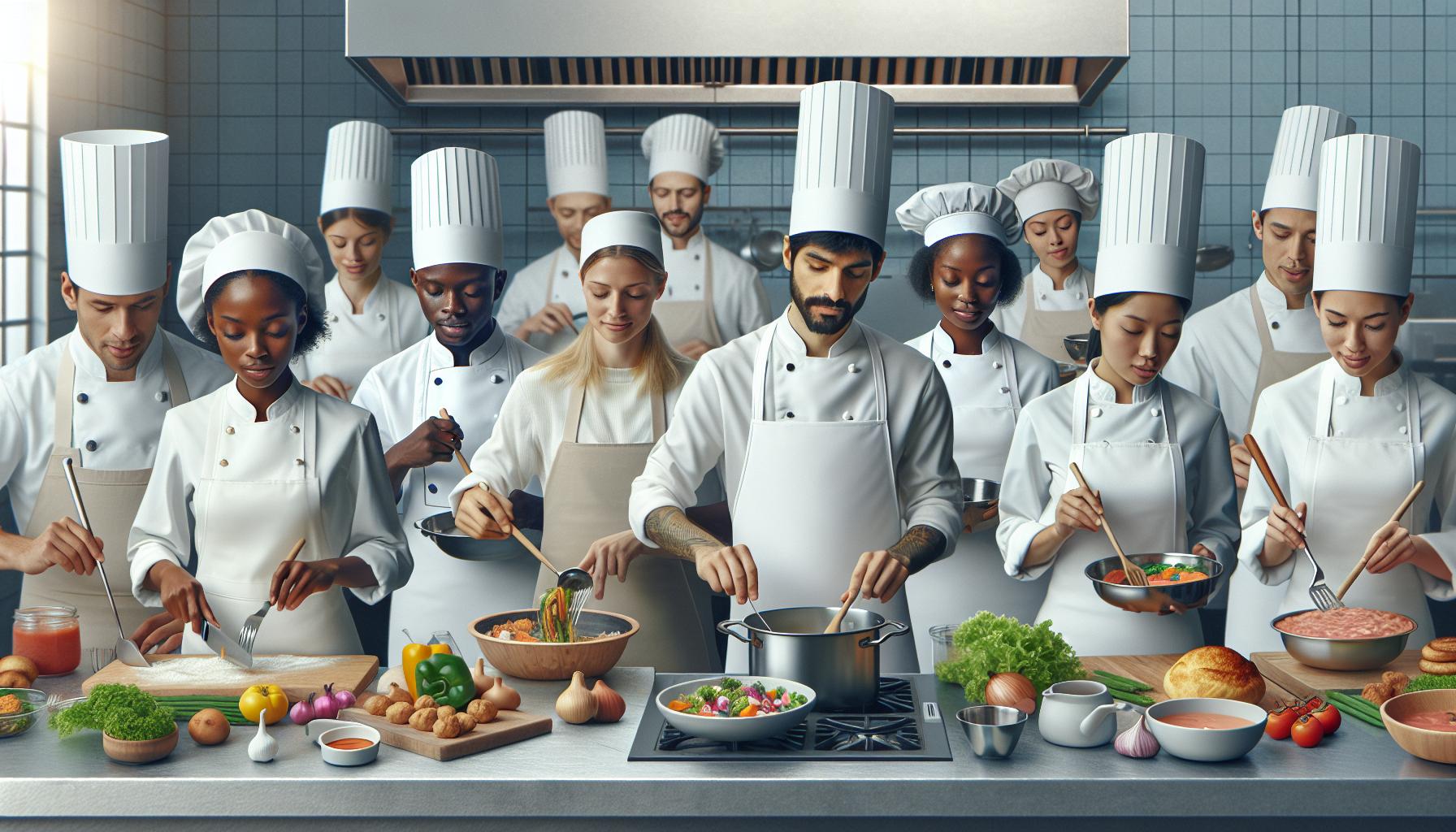
Apprenticeships and on-the-job training provide crucial real-world experience for aspiring chefs. These pathways enable individuals to learn directly from seasoned professionals in a dynamic kitchen environment.
- Culinary Apprenticeships
Culinary apprenticeships combine formal education with practical training. These programs typically last 1-3 years and include a mix of classroom instruction and hands-on work. Apprentices get exposure to various kitchen roles, enhancing their skills in cooking, baking, and food safety. - Mentorship Opportunities
Mentorship plays a vital role in apprenticeships. Aspiring chefs work under experienced chefs who share their knowledge and techniques. This guidance helps them refine their culinary skills and develop their unique cooking style. - Real-World Experience
On-the-job training allows aspiring chefs to apply their culinary education in a fast-paced environment. They learn to handle pressure during busy service times, improve time management skills, and gain insights into kitchen operations and teamwork. - Networking Benefits
Participation in apprenticeships facilitates valuable networking opportunities. Chefs often establish connections within the industry, which can lead to job opportunities or collaborations in the future. - Job Readiness
Completing an apprenticeship equips individuals with the necessary skills to enter the job market. Employers value hands-on experience, making apprentices more attractive candidates for positions within restaurants, hotels, and catering companies.
Overall, apprenticeships and on-the-job training serve as essential components of a chef’s education, providing practical skills and experiences that formal culinary programs alone may not deliver.
Skills Acquired Through Education
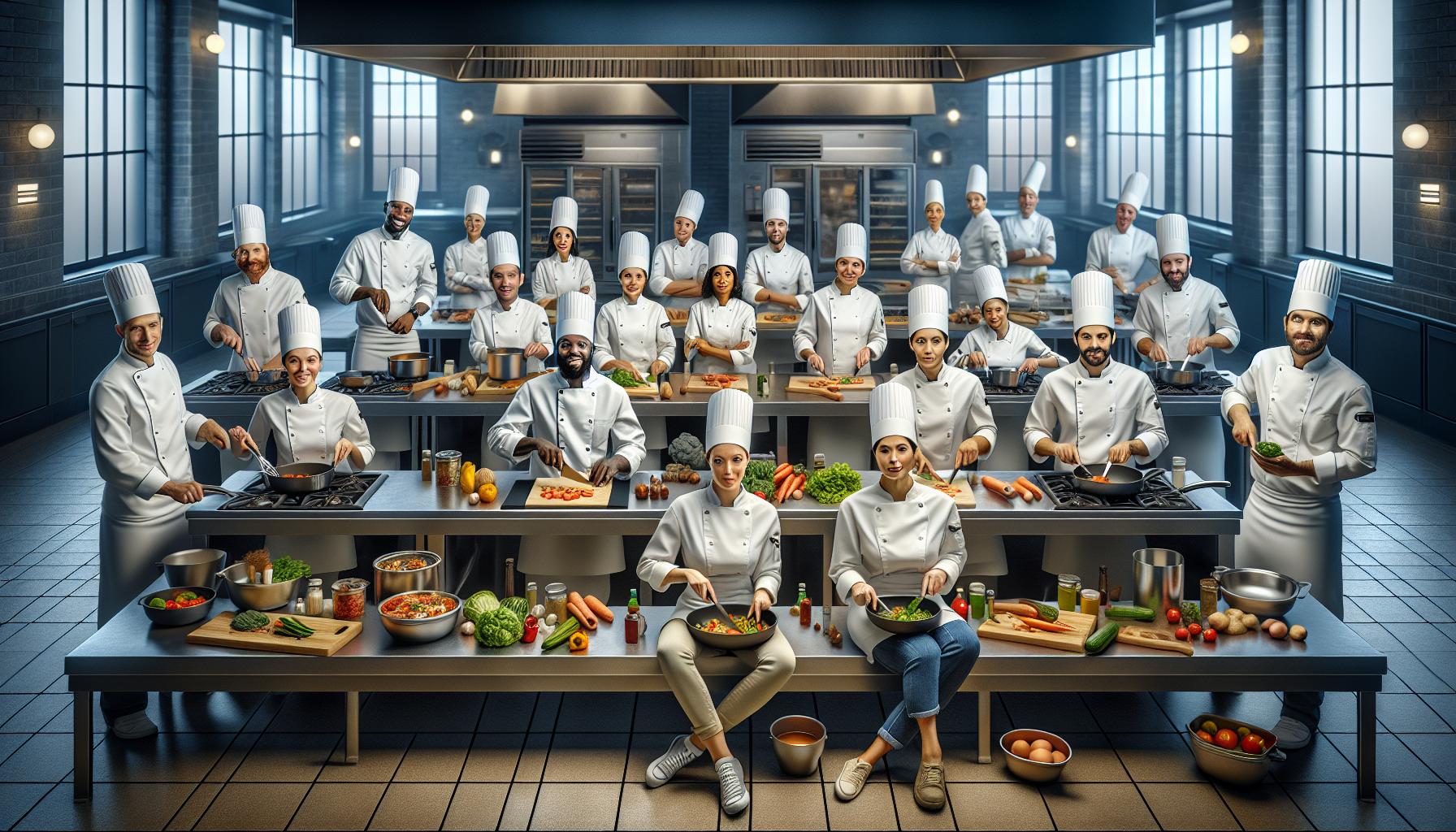
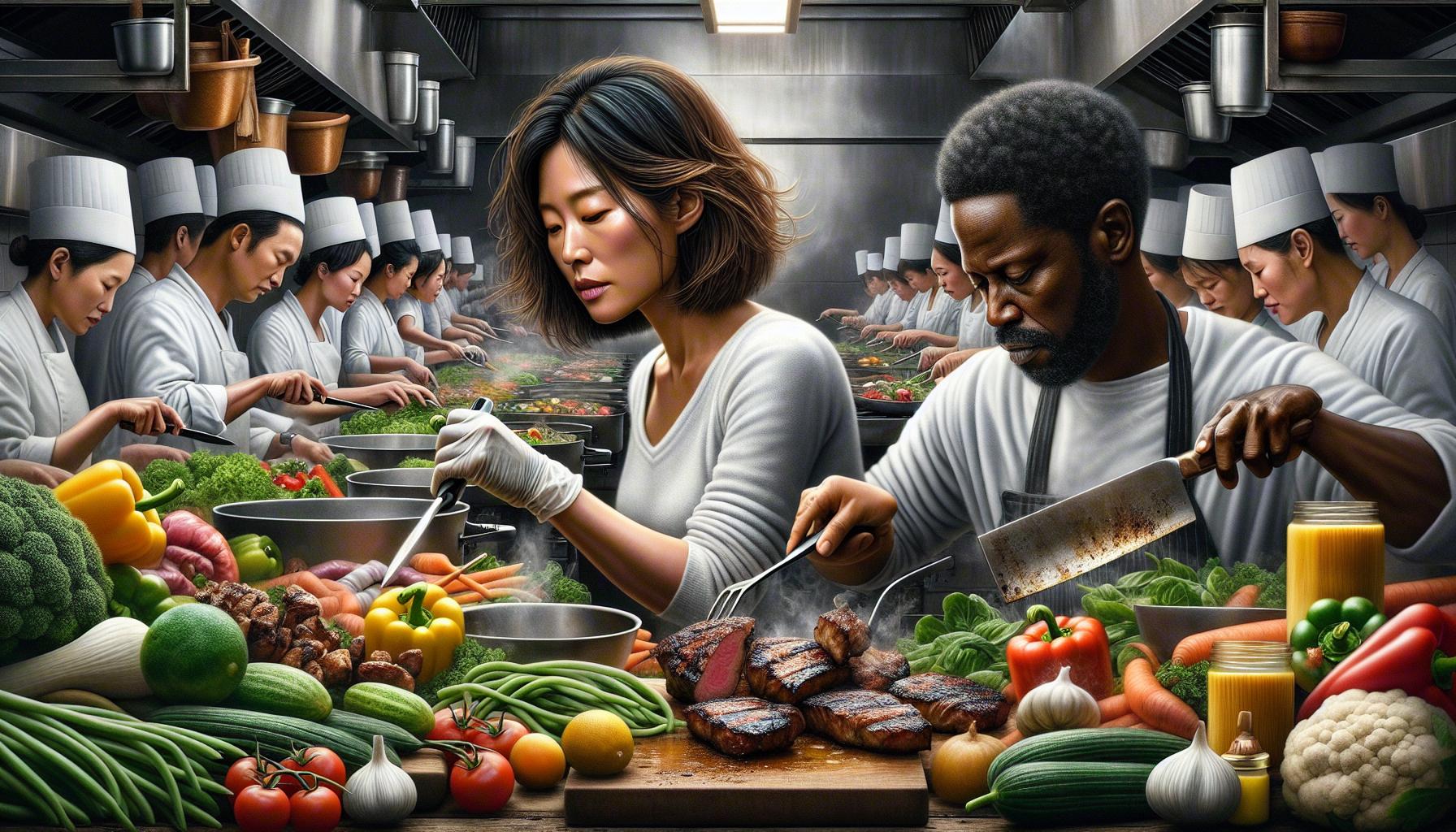
Culinary education equips aspiring chefs with a diverse skill set essential for success in the kitchen. From technical skills in cooking to soft skills for effective teamwork, education plays a critical role in shaping a chef’s capabilities.
Technical Skills
Technical skills form the backbone of a chef’s competence, developed through hands-on training. Cooking techniques include knife skills, sautéing, grilling, and baking, enabling chefs to execute dishes with precision. Knowledge of food safety regulations ensures compliance with health standards, reducing risks in the kitchen. Understanding ingredients and their properties, such as flavor profiles and cooking methods, allows chefs to create balanced and innovative dishes. Additionally, menu planning and plating techniques enhance the visual appeal of culinary creations, crucial for enticing customers. Culinary education also covers nutrition, preparing chefs to accommodate dietary restrictions and promote healthy eating.
Soft Skills
Soft skills complement technical proficiencies, fostering a collaborative kitchen environment. Communication skills enhance interactions with kitchen staff and front-of-house employees, ensuring smooth service. Time management skills prove vital during busy service hours, where efficiency impacts customer satisfaction. Problem-solving abilities allow chefs to address unexpected challenges in real-time, adapting menus or resource allocation. Leadership skills become essential for those in supervisory roles, guiding team members and maintaining morale. Creativity also drives culinary innovation, helping chefs develop unique flavors and presentation styles, enhancing the overall dining experience.
Alternative Learning Pathways
Aspiring chefs can explore various alternative learning pathways to gain culinary skills. These options often provide flexibility and unique experiences outside traditional culinary schools.
Online Courses
Online courses present a convenient way for chefs to acquire culinary knowledge. Many reputable platforms offer programs covering essential topics like cooking techniques, baking, and nutrition. Accessing materials at any time allows individuals to learn at their own pace. For instance, sites like Coursera and Udemy feature classes from culinary professionals and renowned institutions. Participants receive valuable insights while mastering specific skills, leading to certificates that can enhance resumes.
Self-Teaching Methods
Self-teaching methods enable aspiring chefs to develop their culinary talents independently. Utilizing cookbooks, instructional videos, and food blogs can provide comprehensive knowledge on various cuisines and techniques. Online resources, such as YouTube channels run by professional chefs, allow learners to visualize cooking methods and style. Regular practice in the kitchen, experimenting with recipes, and utilizing feedback helps refine skills. Engaging with culinary communities on social media platforms can also provide support and inspiration, fostering professional growth through shared experiences.
A Solid Education is Vital For Anyone
A solid education is vital for anyone aspiring to become a chef. It lays the groundwork for essential skills and knowledge that are crucial in the culinary world. Whether through formal culinary schools, community colleges, or apprenticeships, each pathway offers unique benefits that contribute to a chef’s development.
Continued education and practical experience enhance a chef’s ability to thrive in a competitive industry. With the right training and dedication, aspiring chefs can unlock exciting career opportunities and make their mark in the culinary landscape. Investing in education not only hones technical skills but also nurtures creativity and leadership, ensuring chefs are well-prepared for the challenges ahead.